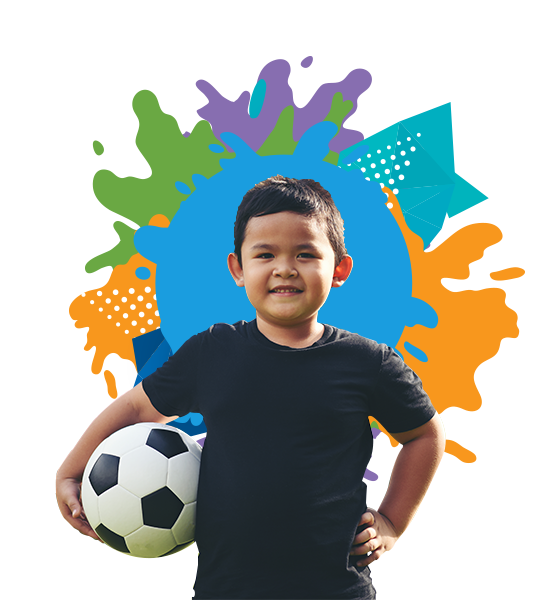HGH For Kids | Uses & Benefits
HGH Therapy for Kids
Most parents want to ensure that their child’s development and growth is on track. For this reason, it would be stressing for a parent to find out their kid has an HGH deficiency. One of the side effects of GH deficiency is short stature.
If you notice the development and pace is slow it is good to visit a pediatrician & ask for Growth Hormone for Kids. He or she will conduct principal diagnosis to determine whether your kid needs any therapy.
Human growth hormone is the enzyme responsible for a kid’s growth and Hormone Therapy for Children is a great way to treat your kid if he or she has GH deficiency. If a child has fewer amounts of HGH for Children, it slows down his or her growth.

Growth hormones are naturally produced by the Pituitary gland at the base of your child’s brain. This hormone is responsible for your child’s growth. How? It stimulates the multiplication of cells, growth of tissues and organs and development and maturity of the bone structure.
Your kid’s height, maturity into puberty and strength in their bone structure is dependent on the levels of growth hormone in their system.
It is possible for your child’s brain to produce less growth hormone than required. This is where growth hormone therapy comes in. It will ensure normal growth in terms of weight and height and also facilitate the normal functioning if body processes like metabolism.
HGH therapy for children will also help to correct some symptoms from conditions like Turner Syndrome, Noonan Syndrome, Small for Gestation Age among others. Every child needs enough HGH to grow and mature the correct way.
If you notice any of the following symptoms in your child, then you should consider seeing a Pediatrician to help you with further diagnosis:
- Short Stature
- The child may appear younger in comparison with other children of his or her age
- Low energy level
- Decreased exercise and strength tolerance
- Low growth velocity for pubertal stage and age
- Dry and thin skin
- Feelings of depression, sadness, or anxiety causing a change in social attitude
- Decreased muscle mass
Use of Growth Hormone for Children will help reduce the symptoms that come with GH deficiency.
If you feel like your kid has a growth disorder, it is best to see a pediatrician. If the pediatrician has some concerns regarding the child’s growth, then a pediatric endocrinologist, a doctor specializing in treating growth and hormone disorders, will be referred to you.
Your doctor will most probably review your child’s current health state as well as your family’s medical records. He or she may even ask for your child’s growth chart for proper analysis, and may even conduct a complete physical examination. Usually, the evaluation starts with collecting information concerning how tall your relatives are or if you have any family members suffering from different types of health complications.
A history of early or late puberty in family members should be mentioned as well. The doctor might want to inquire about the mother’s pregnancy, labor, and childbirth. Then all the measurements of the child’s weight and height from birth and onwards are gathered so that the doctor can plot them on a growth chart.
If the doctor believes that your child is not producing adequate growth hormones, then an HGH stim test or stimulation test may be performed. Listed below are some of the things you need to expect during your child’s stem test:
- Your child’s arm or hand will be subjected to intravenous (IV) needle that will then enable the nurse or doctor to collect a blood sample.
- Your child will be given medication that will stimulate his or her pituitary gland to produce and release more growth hormones through the IV.
- Every few hours at different times, blood samples will be drawn from your child’s IV.
- To verify if your child is producing the normal and expected levels of growth hormone, all blood samples will be sent to a laboratory for testing. Side effects include feeling tired and wanting to rest more.
Other types of tests that your doctor might recommend for the identification of growth disorders include MRI or CT scan, genetic tests, and bone-age X-rays.
The best way to counter the low levels of growth hormone in your child is through HGH therapy. After diagnosis and your child is found to have low GH levels, the doctor will start them off right away on GH therapy for children. Based your child’s medical history, genetics, age and other factors that the doctor may think is important, your child will receive a prescription.
This will involve several injections of the human growth hormone for children done over a period of time. Your child’s progress will be monitored and more tests will be done in the process. It is advisable to start treatment early enough-before puberty, if you want your child to get maximum benefits.
Growth hormones are naturally produced by the Pituitary gland at the base of your child’s brain. This hormone is responsible for your child’s growth. How? It stimulates the multiplication of cells, growth of tissues and organs and development and maturity of the bone structure.
Your kid’s height, maturity into puberty and strength in their bone structure is dependent on the levels of growth hormone in their system.
It is possible for your child’s brain to produce less growth hormone than required. This is where growth hormone therapy comes in. It will ensure normal growth in terms of weight and height and also facilitate the normal functioning if body processes like metabolism.
HGH therapy for children will also help to correct some symptoms from conditions like Turner Syndrome, Noonan Syndrome, Small for Gestation Age among others. Every child needs enough HGH to grow and mature the correct way.
If you notice any of the following symptoms in your child, then you should consider seeing a Pediatrician to help you with further diagnosis:
- Short Stature
The child may appear younger in comparison with other children of his or her age- Low energy level
Decreased exercise and strength tolerance
Low growth velocity for pubertal stage and age
Dry and thin skin
Feelings of depression, sadness, or anxiety causing a change in social attitude
Decreased muscle mass
Use of Growth Hormone for Children will help reduce the symptoms that come with GH deficiency.
If you feel like your kid has a growth disorder, it is best to see a pediatrician. If the pediatrician has some concerns regarding the child’s growth, then a pediatric endocrinologist, a doctor specializing in treating growth and hormone disorders, will be referred to you.
Your doctor will most probably review your child’s current health state as well as your family’s medical records. He or she may even ask for your child’s growth chart for proper analysis, and may even conduct a complete physical examination. Usually, the evaluation starts with collecting information concerning how tall your relatives are or if you have any family members suffering from different types of health complications.
A history of early or late puberty in family members should be mentioned as well. The doctor might want to inquire about the mother’s pregnancy, labor, and childbirth. Then all the measurements of the child’s weight and height from birth and onwards are gathered so that the doctor can plot them on a growth chart.
If the doctor believes that your child is not producing adequate growth hormones, then an HGH stim test or stimulation test may be performed. Listed below are some of the things you need to expect during your child’s stem test:
Your child’s arm or hand will be subjected to intravenous (IV) needle that will then enable the nurse or doctor to collect a blood sample.
Your child will be given medication that will stimulate his or her pituitary gland to produce and release more growth hormones through the IV.
Every few hours at different times, blood samples will be drawn from your child’s IV.
To verify if your child is producing the normal and expected levels of growth hormone, all blood samples will be sent to a laboratory for testing.
Side effects include feeling tired and wanting to rest more.
Other types of tests that your doctor might recommend for the identification of growth disorders include MRI or CT scan, genetic tests, and bone-age X-rays.
The best way to counter the low levels of growth hormone in your child is through HGH therapy. After diagnosis and your child is found to have low GH levels, the doctor will start them off right away on GH therapy for children. Based your child’s medical history, genetics, age and other factors that the doctor may think is important, your child will receive a prescription.
This will involve several injections of the human growth hormone for children done over a period of time. Your child’s progress will be monitored and more tests will be done in the process. It is advisable to start treatment early enough-before puberty, if you want your child to get maximum benefits.
Is Growth Hormone safe for Kids?
Blood Testing for GH in Kids
Measuring exact GH levels can be challenging as the body makes it short bursts, more than often during the night. So with this in mind, our physicians look at the levels of 2 proteins with more constant levels and are indicators of GH function. These are IGF-I, insulin-like growth factor I, and IGFPB-3, or insulin-like growth factor binding protein-3.
